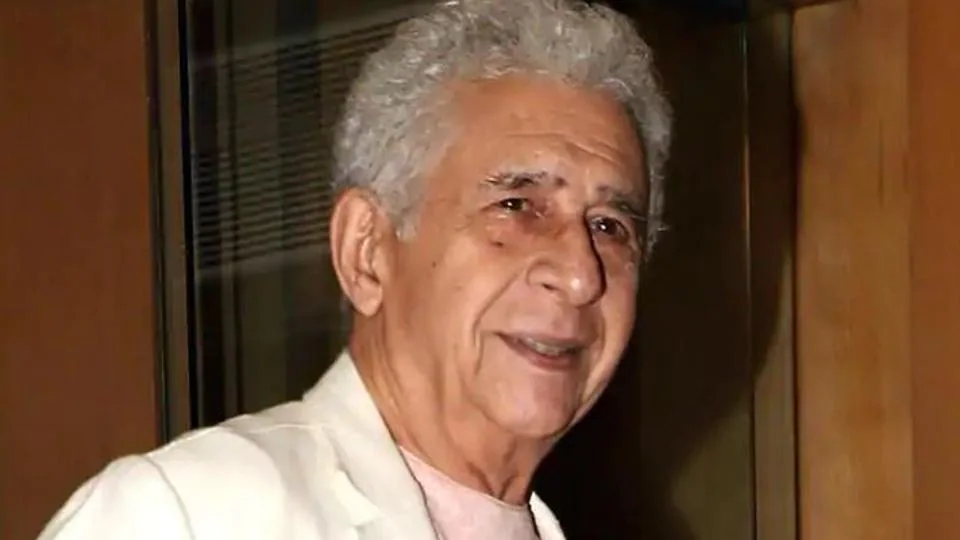On Naseeruddin Shah And His Displeasure


Ever since his comment on intolerance in India a few years ago, Naseeruddin Shah has proceeded to make affable remarks on various characters, too; from Virat Kohli to Anupam Kher. He, I think, presents an interesting case, and by that word I do not refer to the validity of his arguments but to the man himself as a ‘case to be studied’.
The anonymity afforded by social media, thankfully honoured more in the observance than in the breach by my reckoning, has also freed the little devil in humans that craves destructive, unmannerly utterance, and prefers it to measured speech. Accordingly, it may not be an altogether uncommon view in the sea of anonymous ‘RW’ accounts that Naseeruddin Shah is, fundamentally, a man who conceals the sentiment of a jihadi under his robes of sophistication — an English-speaking jihadi.
I do not agree with such an assessment. For one, although he does speak English with ease, with grammatical correctness, and with flawless pronunciation (by his own account he graduated with a B.A. in English Literature), it seems to me that the preponderance of his statements are in Urdu, or Urduized Hindi, if you so please. So, the description of him as an ‘English-speaking’ jihadi is inaccurate. Secondly, I do not view him as a ‘jihadi’, either. He solemnly chastised sections of the Indian Muslim community that were exultant at the return of the Taliban. I submit an English translation of his comments:
Although the return to power of the Taliban in Afghanistan is a cause for global concern, no less is it dangerous that sections of the Indian Muslims are celebrating the return of these barbarians. Every Indian Muslim must today ask himself whether he wants reform and modernity in his religion, or the old barbarism of previous centuries. I am an Indian Muslim, and as Mirza Ghalib said of old, my relation with Allah is frank and familiar, and I have no use for political religion. Indian Islam has ever been different from that Islam which prevails in the rest of the world, and may God never usher in such an age in which it has changed beyond recognition.
The raconteur of history, with regard to his last sentence, may with dispassion speak differently, but, at the risk of sounding an uncritical apologist of the twenty-first century, and thereby offending the newly born traditionalists, I must say that Naseeruddin Shah himself has long seemed to me a man wedded to modernity — both in his literal marital status, for Ratna Pathak Shah effuses modernity, and figuratively, for his faith has not proven to rule his approach towards his wife.
It appears, then, that he is fettered by a phenomenon that is today commonly observed across the world — influence of only one kind of news. Elder to my father by a comfortable two decades, he cannot but have known of days when inter-religion violence, called ‘communal violence’ in Indian English, often was of such fury as to result in school holidays. That intensity has, doubtless, undergone a diminution. In one sense, therefore, India has become more peaceful, or, more accurately, less violent. My take is that a certain degree of intolerance has always existed in Indian society, and it has merely become greatly more conspicuous with the rise of social media.
Social media is home to a lively floral bloom of invectives, adorning the forest of trolling and hateful sentiment. The mind is bewildered by the enormity of it all. The significant possibility that the average threat is made by a man of humble and threatless physical proportions, or by someone whose limbs are averse to the slightest exertion, fails to be accounted by our instinctive feeling of being cornered.
Perhaps Naseeruddin Shah is a prisoner of such instinctive feeling. It is not my contention that India lives today through the happiest of her days; far from it, but, Shah’s take verges on an exaggerated view of reality, to which I, too, am so often susceptible.
‘Threatless’ is not a word. I used it regardless because I needed a word with fewer syllables than ‘unthreatening’ and which also used the component ‘threat’. ‘Threatless’ fit the bill, and my desire to see grammatical perfection in my writing, possibly oft-unfulfilled, is no bar to my refractoriness in use of language.
DISCLAIMER: The author is solely responsible for the views expressed in this article. The author carries the responsibility for citing and/or licensing of images utilized within the text.
